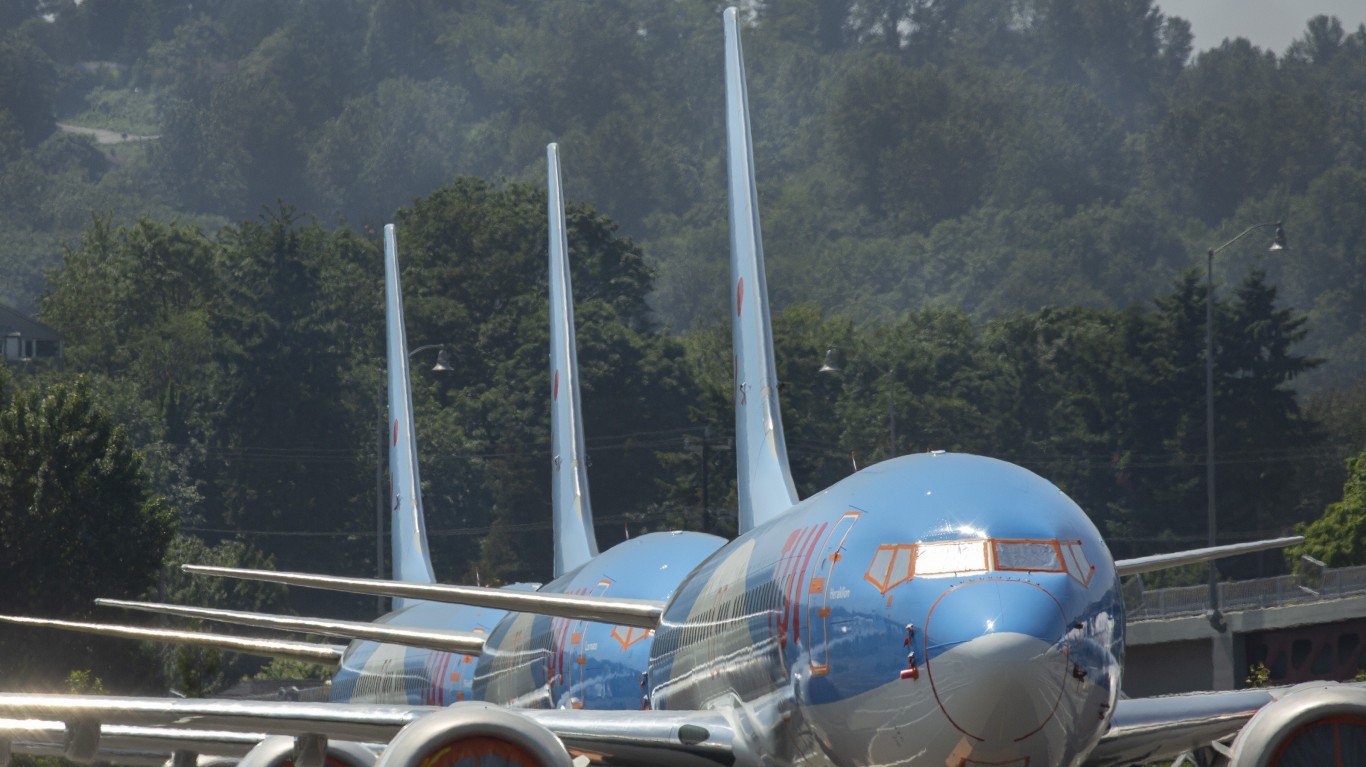

Since the 737 Max was grounded in March of last year, Boeing Co. (NYSE: BA) has delivered none of the planes, and deliveries of the company’s remaining commercial jets totaled just 50 for the first quarter of 2020. In the final quarter of last year, the company delivered 79 commercial jets, for an annual total of 380. In the fourth quarter of 2018, Boeing delivered 238 new aircraft, with full-year deliveries of 806 commercial planes.
For the first three months of 2020, Boeing has taken 18 new orders (gross) for the 737 Max. Customers have canceled 173 orders, and another 141 of the new planes were removed from the order book to comply with a new accounting standard. Net orders for the 737 Max in 2020 totals negative 314. Boeing’s backlog for the planes has dipped from 4,407 to 4,079.
On Monday the company restarted some operations in Washington that had been shut down to slow the spread of COVID-19. About 2,500 employees of the 30,000 or so that Boeing employs in the state were recalled to work. Defense programs are the primary beneficiary of the recall, as are the company’s facilities in Moses Lake, Washington, where Boeing is storing some of its 737 Max inventory and maintenance workers are being brought back.
Boeing sold 29 Dreamliners (787s) in the first quarter and six 777s. The company also sold 10 767s, five to its Defense division to be converted into KC-46 tankers for the U.S. Air Force. Four 767s converted to freighters were delivered to FedEx and one to UPS. Three prior generation 737-800s were delivered to the Defense division to provide the base for the P-8A Poseidon intelligence, surveillance and reconnaissance aircraft.
A few weeks ago, Boeing’s new CEO, David Calhoun, declared that Boeing would accept no federal funds to help overcome the impact of the COVID-19 outbreak if the funding required the company to provide equity to the federal government. The CARES Act included a $17 billion slice for loans and guarantees for companies determined to be crucial to the national interest.
Calhoun may have been given enough wiggle room in the final version of the legislation to take advantage of federal largesse while still allowing the Trump administration to skirt complaints about corporate welfare. The company is reportedly still looking over all its options.
It’s worthwhile to note that Boeing employs about 150,000 Americans and that its supply chain supports another million or more in thousands of businesses across the United States. A company spokesperson told the New York Times that Boeing continues to pay its suppliers and that 70% of the money it takes in “goes directly to maintain the supply chain.”
The problem for the supply chain is that 50 commercial jets don’t generate as much quarterly revenue as did the 200 planes Boeing delivered on average during every quarter of 2018.
Earlier this month, Boeing announced a voluntary layoff plan and said that details of the plan’s benefits and pay would follow in three or four weeks. Boeing plans to report first-quarter results on April 29, so this question and others should get answered by then.
Boeing stock traded down about 1% in the noon hour Tuesday, at $145.74 in a 52-week range of $89.00 to $391.00. The consensus 12-month price target is $164.50. Boeing already has suspended its dividend and halted stock repurchases.
Sponsored: Find a Qualified Financial Advisor
Finding a qualified financial advisor doesn’t have to be hard. SmartAsset’s free tool matches you with up to 3 fiduciary financial advisors in your area in 5 minutes. Each advisor has been vetted by SmartAsset and is held to a fiduciary standard to act in your best interests. If you’re ready to be matched with local advisors that can help you achieve your financial goals, get started now.
Thank you for reading! Have some feedback for us?
Contact the 24/7 Wall St. editorial team.
 24/7 Wall St.
24/7 Wall St.